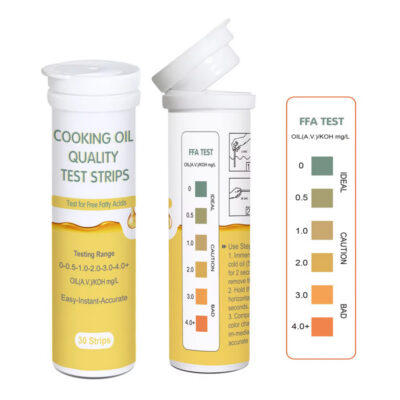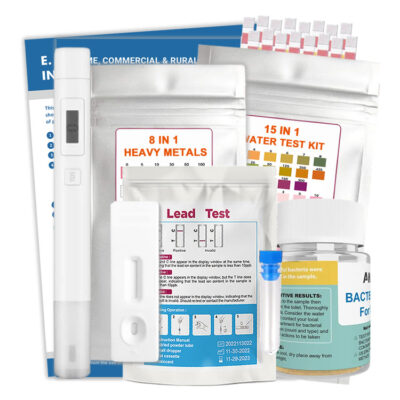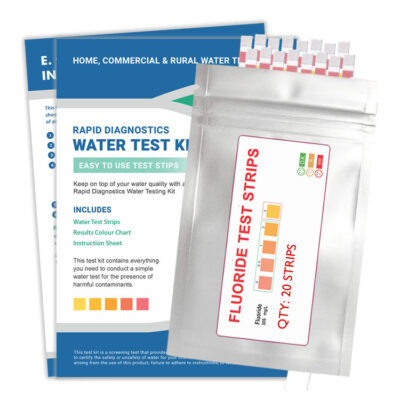Bore Water Test Kits are commonly used before using bore water as it can be naturally contaminated by minerals, chemicals, bacteria and viruses. Human activity is normally the greatest cause of bore water contamination. Our 14 in 1 Bore Water Test Kits measure 14 of the most common parameters.

Bore Water
Bore water is water that is naturally stored below ground level (aquifers) has been tapped into by drilling a bore which is pumped to the surface. Aquifers can contain a variation of naturally occurring minerals, chemicals, bacteria and viruses that can be harmful to human health.
Bore Water Testing
Testing your bore water with bore water test kits can help you to determine if it can be used for commercial purposes. This includes growing plants, feeding stock. Residential purposes include flushing toilets, showers, swimming pools, food preparation or drinking. Bore water testing procedures will vary between private, commercial or community bores however all bores should have microbiological and chemical testing prior to use.
Bore water which is used for drinking purposes and food preparation should be measured against the Australian Drinking Water Guidelines.
Signs of bore water contamination
Bore water contamination is identified by any of the following signs.
- Unusual taste in your drinking water
- A low pH value which is acidic water
- Sings of sewage, chemicals or a rotten egg smell
- Odd colour in your water
- Plants dying or withering
- Animals reluctant to drink
- Soapy suds detected around sprinklers
If any of these occur, test your water regularly or contact your local council or water corporation.
Do you need to treat bore water?
It's not necessary to treat your bore water as long as;
- it has a pH value greater than 5 and any reading below this is considered as acidic water.
- it is colourless and odorless and only used for gardening, washing cars and flushing of toilets.
- bore water intended for drinking purposes should be tested regularly.
Reasons for bore water contamination
Water contamination is quite common in bore water, following are the most common reasons.
- Naturally generated minerals
- Excessive use of fertilisers
- Poorly maintained waste tanks
- Leakage from waste disposal areas
- Aggressive agriculture or mining
- Chemical spills
As a result of bore water contamination, water can simply look unpleasing causing staining or have unpleasant smalls or tastes. Example includes areas high in iron oxide which can cause a red brown stain. Other bore water contaminants such as pesticides, nitrate and arsenic are a concern especially if you are using bore water for watering of edible plants, drinking or food preparation.
Bore Water Test Kits
Bore water test kits can be used to understand if your bore water is contaminated. They provide you with an indication of the level of pH, alkalinity, nitrite, nitrate, hardness, bromine, lead, iron and copper and more.
Bore water which has been contaminated should be re-tested by your local council, water quality specialists, a NATA accredited laboratory or the Department of Health.
While city water is regularly monitored, bore water which is used for drinking purposes and food preparation should be measured against the Australian Drinking Water Guidelines.
For more information on bore water test kits, refer to the Bore Water Test Kit Bundle: Bore Water Test Kit.





